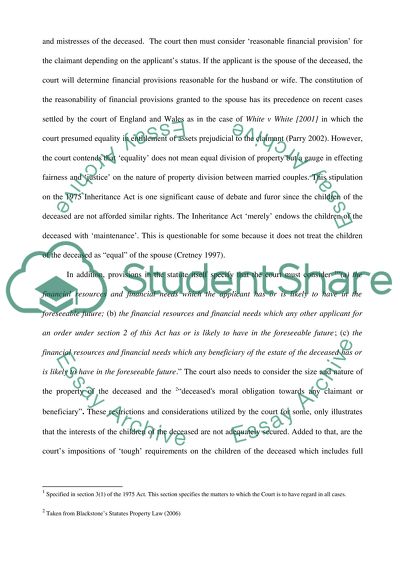Cite this document
(“Law of Succession Essay Example | Topics and Well Written Essays - 2500 words - 1”, n.d.)
Law of Succession Essay Example | Topics and Well Written Essays - 2500 words - 1. Retrieved from https://studentshare.org/miscellaneous/1539411-law-of-succession
Law of Succession Essay Example | Topics and Well Written Essays - 2500 words - 1. Retrieved from https://studentshare.org/miscellaneous/1539411-law-of-succession
(Law of Succession Essay Example | Topics and Well Written Essays - 2500 Words - 1)
Law of Succession Essay Example | Topics and Well Written Essays - 2500 Words - 1. https://studentshare.org/miscellaneous/1539411-law-of-succession.
Law of Succession Essay Example | Topics and Well Written Essays - 2500 Words - 1. https://studentshare.org/miscellaneous/1539411-law-of-succession.
“Law of Succession Essay Example | Topics and Well Written Essays - 2500 Words - 1”, n.d. https://studentshare.org/miscellaneous/1539411-law-of-succession.


